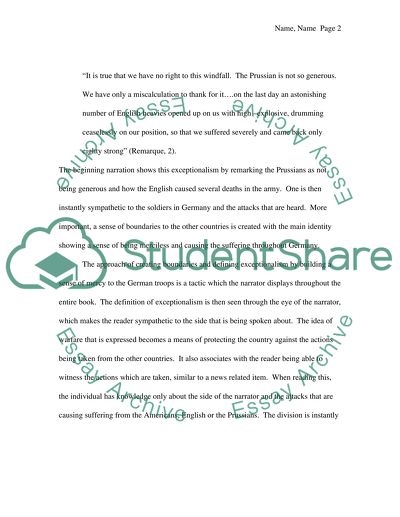Cite this document
(“Exceptionalism in All Quiet on the western Front Research Paper”, n.d.)
Retrieved from https://studentshare.org/family-consumer-science/1416918-exceptionalism-in-all-quiet-on-the-western-front
Retrieved from https://studentshare.org/family-consumer-science/1416918-exceptionalism-in-all-quiet-on-the-western-front
(Exceptionalism in All Quiet on the Western Front Research Paper)
https://studentshare.org/family-consumer-science/1416918-exceptionalism-in-all-quiet-on-the-western-front.
https://studentshare.org/family-consumer-science/1416918-exceptionalism-in-all-quiet-on-the-western-front.
“Exceptionalism in All Quiet on the Western Front Research Paper”, n.d. https://studentshare.org/family-consumer-science/1416918-exceptionalism-in-all-quiet-on-the-western-front.


